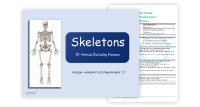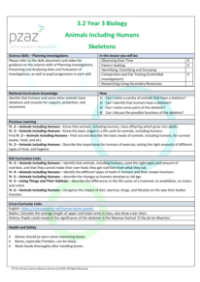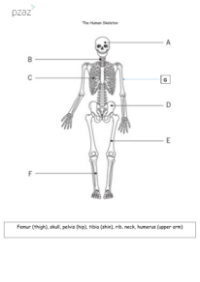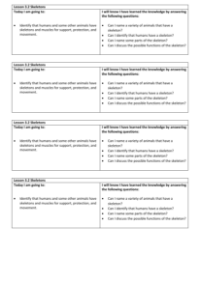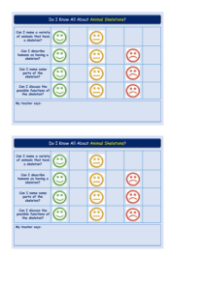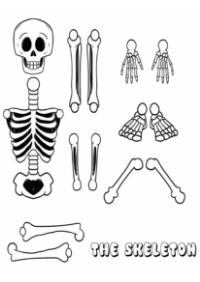Skeletons - Results Tables
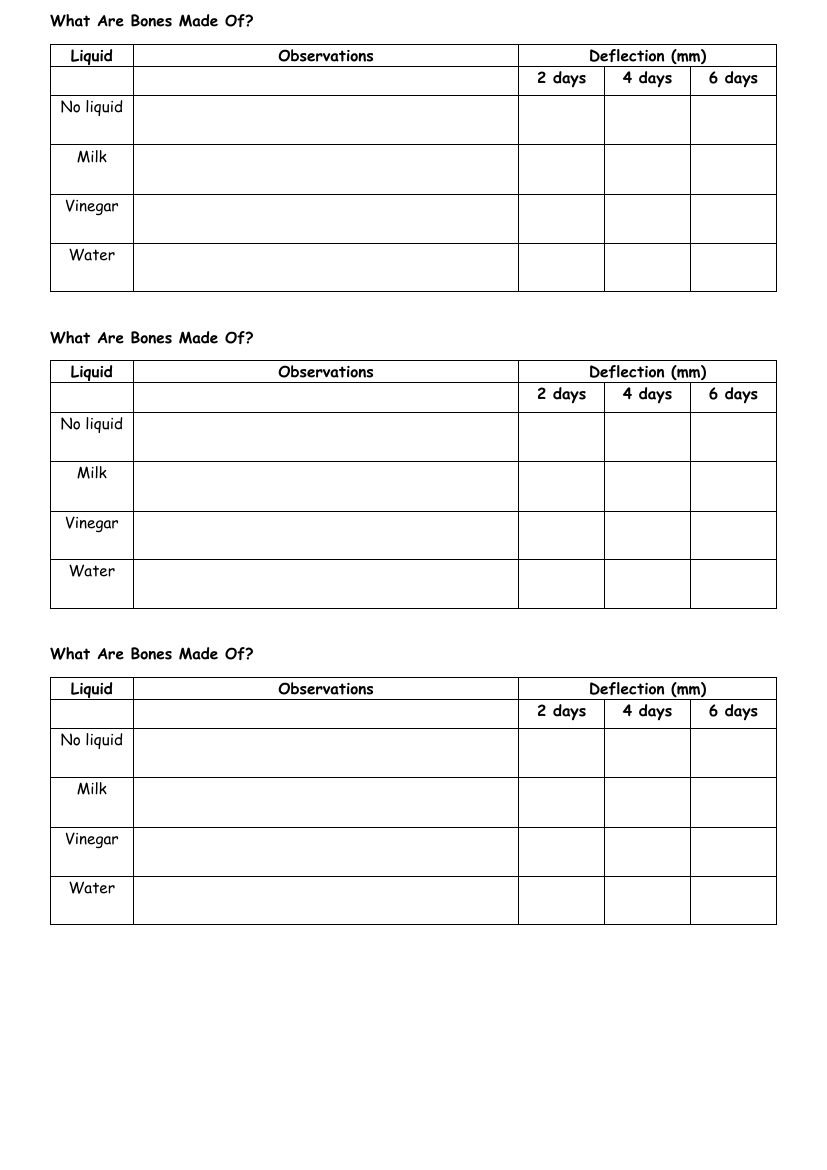
Science Resource Description
The study titled "What Are Bones Made Of?" involves a series of experiments to observe the effects of different liquids on bone flexibility over time. Results are meticulously recorded in tables that measure the deflection in millimetres at intervals of 2 days, 4 days, and 6 days. The liquids used in this study are milk, vinegar, water, and a control group with no liquid. Each liquid's impact on the bones is monitored to see how they alter the bone's structural integrity, with particular attention to how much the bone bends or deflects under a standardised force.
These results tables are crucial for understanding the composition and resilience of bones when subjected to various substances. By comparing the deflection measurements across different time frames, researchers can infer how bones react and potentially degrade or strengthen in these liquids. The experiment provides insights into the effects of diet and environment on bone health. For example, milk, which is rich in calcium, might affect bone density differently than vinegar, which is acidic and could lead to bone decalcification. The study's findings could have implications for nutritional science and orthopaedics.
